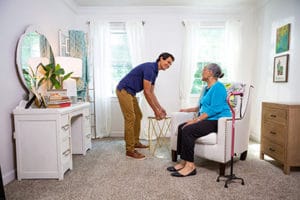When you look at your vintage car, doesn’t it remind you of the good old days, a simpler time? Let’s look at some ways to preserve those memories by making sure you’re able to preserve the value of your classic car and store it in either seasonal or long-term storage.
We’ll also take a look at insurance that you can use to protect your car, whether that be classic car insurance or comprehensive insurance. I highly recommend using both to protect your car. Both have different things that they cover, but in tandem, they work really well.
How Classic Car Insurance Can Help Preserve Your Classic Car
You might be wondering what classic car insurance is. Basically, it’s just insurance for antique or vintage cars. This kind of insurance covers what regular car insurance would cover, but it is strictly for cars made in the 20th century.
Classic cars can be expensive to maintain, so this is a great policy to have. A lot of seniors use this policy, and it has done wonders for them. And the beauty of it is that classic car insurance costs less than regular car insurance by a couple hundred dollars.
Pro Tip: To qualify for classic car insurance, you have to make sure that you don’t drive your classic car too often and make sure that it is kept in good condition.
Classic car insurance is extremely helpful in making sure those precious memories of yours are preserved. Let’s take a look now at seasonal and long-term storage. These might be able to help you keep your car and your memories safe.
What’s the Difference Between Seasonal and Long-term Storage?
Seasonal storage is a lot like short-term storage, except that it may be a bit longer than a few months. You store your classic car for a season to make sure there’s no damage to your car from inclement weather.
Pro Tip: Offseason for vintage cars is during the winter months.
Long-term storage is pretty simple to explain. You’re just storing your classic car for more than a season. It could be for six months or it could be for a year.
Whether you need seasonal storage or long-term storage depends on what you need. If you’re unable to make a decision, consult someone you trust like your children or other family members.
Important Note: As you get older, it may be good to have discussions with your children or other family members about whether it’s safe for you to drive. Don’t be afraid to talk about these things with people you trust.
Why Comprehensive Insurance Is Good for Your Classic Car
Comprehensive insurance is insurance that covers damages made by natural causes such as hail, wind, and floods. It also covers theft, vandalism, and collisions with animals. This is good to have because a lot of damage can be done by nature. This is especially true if you have your classic car out for the spring and summertime.
Your car is also highly susceptible to theft and vandalism. If you’re unable to store your classic car, this type of insurance is perfect. In and out of season, theft or vandalism can happen. It’s important to make sure that the loss or repairs of your car are covered.
No one plans on hitting an animal when they’re driving down the road, but it can happen. Comprehensive insurance can make sure that no matter what kind of animal you collide with, you’re compensated for the damage done to your car.
It’s important to stay safe while driving, especially as an older individual. Here are some tips for seniors to stay safe behind the wheel.
Preserving your classic car is so important, especially when you have had so many precious memories with it. Placing it in storage during the offseason or even long-term is a great way to maintain the integrity of your classic car. Seniors who do so find that they are able to keep their classic car for longer periods of time.
Getting your classic car insured is another great way to preserve your car. Classic car insurance and comprehensive insurance are all great policies to use to insure it.
Below are some frequently asked questions. Think of them as a review of what was discussed. Again, if you’re having trouble with maintaining your classic car, consult someone you trust. Ask a family member or a close friend to help you.
Frequently Asked Questions: Classic Car Storage, Cost, Insurance
What can I do to make sure that my classic car is kept safe?
I would highly recommend storing your classic car in either seasonal storage or long-term storage and I would also recommend getting classic car insurance.
Between seasonal storage and long-term storage, which is more affordable?
Seasonal storage is definitely more affordable. Long-term storage costs much more.
What is the difference between seasonal and long-term storage?
Long-term storage is usually a longer duration than seasonal storage.
What classifies a car as a classic car?
A car that is 20 years old or more, kept in good condition, and doesn’t have too much mileage on it classifies as a classic car.
How much does it cost to maintain a classic car?
It depends on the make and model of the classic car. Sometimes the parts needed for the car aren’t being made anymore, depending on how old the car is. I would recommend consulting with a mechanic.
What does classic car insurance cover?
Classic car insurance covers collision, liability, injuries sustained in an accident, and damage done to your property.
What does comprehensive insurance cover?
This type of insurance covers damages made by natural causes such as hail, wind, and floods. It also covers theft, vandalism, and collisions with animals.
Why is it important to have comprehensive insurance?
You can’t predict when a bad storm will happen, or when someone will steal or vandalize your car. It’s important to have comprehensive insurance because it protects your vehicle from unforeseen hazards. This could be said for any insurance, but it is especially true for comprehensive insurance.
Peyton Leonard is a writer and researcher for the car insurance site, CarInsuranceCompanies.com. Peyton is passionate about helping seniors stay safe and save money on car insurance.








